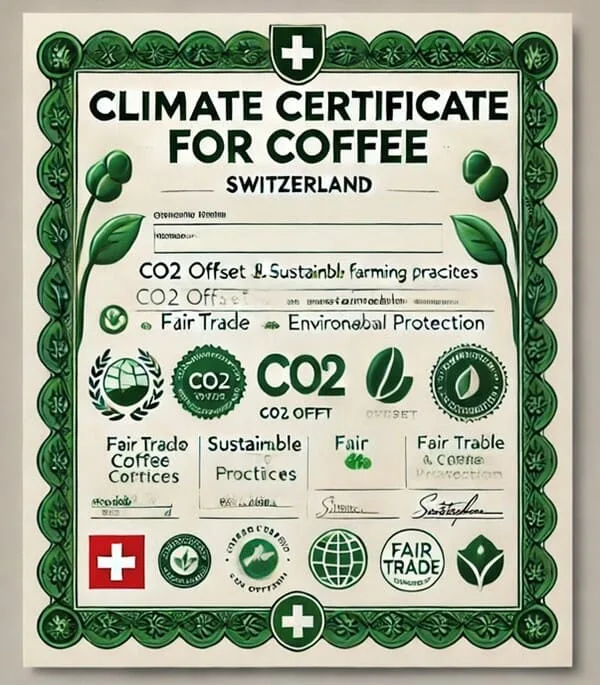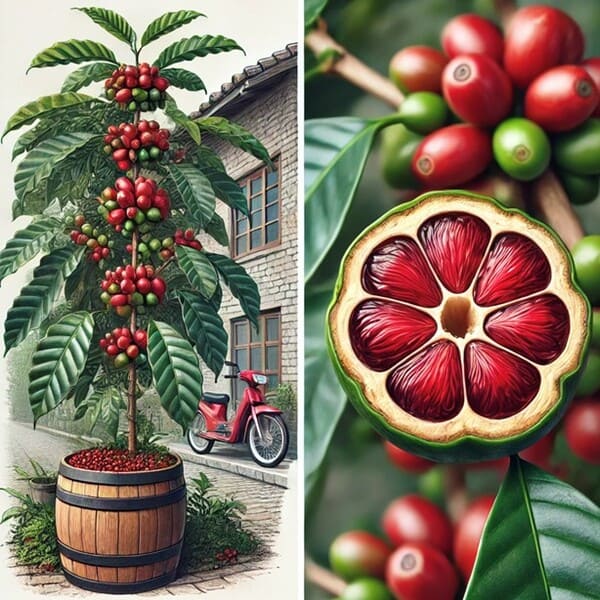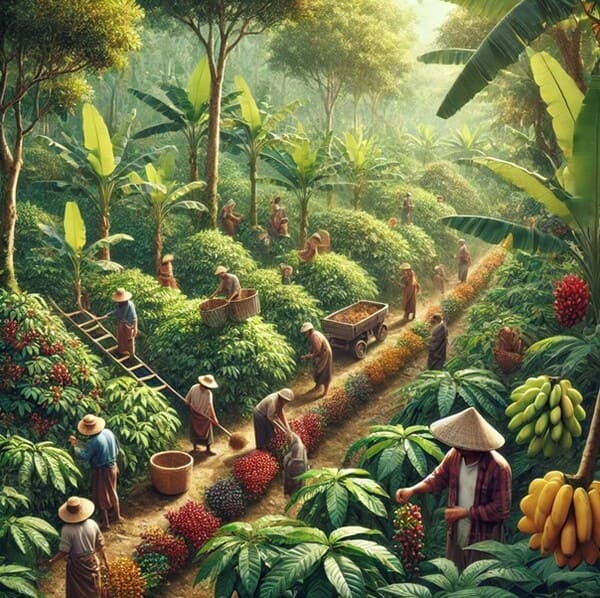
Swissmarmot AG, the renowned Swiss premium water producer, has announced its expansion into sustainable coffee production in Thailand. With a deep understanding of natural resources, the company is well-positioned to focus on environmentally friendly and fair coffee production. A key aspect of this initiative is the organic cultivation of Robusta coffee, which aligns with sustainability goals and fair working conditions for local Thai farmers. The local community has already shown strong support for the project, and the Thai government actively backs this sustainable coffee initiative.
Sustainable Coffee Production in Thailand: A Model for Sustainability and Fairness
The demand for coffee is growing rapidly worldwide. At the same time, it is becoming increasingly clear that conventional cultivation methods often harm the environment and disadvantage local farmers. However, Thailand has emerged as a pioneer in sustainable coffee production in recent years, developing a model that not only meets global market demands but also upholds ecological and social responsibility.
Organic and Environmentally Friendly Cultivation Methods

Robusta coffee plays a pivotal role in Thailand. The Robusta plant thrives under the shade of trees, promoting biodiversity and maintaining the delicate balance of the ecosystem. By integrating Robusta coffee into agroforestry systems, where coffee is grown alongside other plants, the need for pesticides is significantly reduced. These environmentally friendly cultivation methods help preserve soil fertility and protect local water and air systems.
Swissmarmot AG is committed to 100% organic cultivation, avoiding the use of chemical fertilizers and pesticides. This ensures the long-term preservation of the farmlands and surrounding ecosystems. Organically grown Robusta coffee not only becomes an ecological model but also a sustainable resource for the global market.
Fairness for Local Farmers
Beyond the ecological component, fairness is a core element of the project. The Thai government and local population place great importance on ensuring that coffee production benefits the local community. By promoting fair working conditions and fair wages, the project ensures that farmers are adequately compensated for their hard work, contributing to the economic stability of the region.
Swissmarmot AG is dedicated to implementing these values. The company ensures that the local community is actively integrated into the value creation process and benefits from the positive economic effects of sustainable coffee production. This fosters high appreciation for the farmers’ work while simultaneously strengthening rural development in Thailand.
Support Through Carbon Certificates
Another forward-looking element of the project is the use of carbon certificates. By using organic cultivation and implementing sustainable farming methods that bind carbon in the soil and reduce emissions, Thai coffee farmers can generate carbon certificates. These not only contribute to global climate protection but also provide farmers with additional income streams.

Swissmarmot AG works closely with the Thai government and international organizations to promote access to these certificates. The project demonstrates that ecological and economic success can go hand in hand – supporting both global climate protection and the livelihoods of local farmers.
Revolution in Rice Cultivation: The Hi-Rice Method by Michael Blatter
High Appreciation in Thailand
A particularly outstanding feature of this project is the widespread support from the Thai population and government. Sustainability in Thailand is not just an economic necessity but a deeply ingrained cultural value. As a result, Swissmarmot AG is seen as a driving force in transitioning towards fair and ecological production methods within the Thai coffee industry.
By combining organic cultivation, fair working conditions, and the use of carbon certificates, Swissmarmot AG shows that it is possible to produce high-quality Robusta coffee without harming the environment or exploiting the local community.
Conclusion: A Model for the Future
“The Robusta plant is said to grow under the trees. We believe it is important to produce sustainably and protect the environment. Pesticides should be avoided, and fair working conditions and fair wages for all involved are essential.”
With this holistic approach, Swissmarmot AG sets a milestone in global sustainable coffee production. The close connection between people and nature creates a long-term balance that secures the future of the coffee industry without depleting the earth’s resources. Thailand is showing the world how to do it right.
Comparing Traditional Rice Farming Methods with Michael Blatter’s Innovative Pot Method
Postscript: The Robusta Coffee Fruit

The biologically pure Robusta coffee variety stands out due to several characteristics that differentiate it from other types of coffee, particularly Arabica:
- Higher Caffeine Content: Robusta contains approximately twice the caffeine of Arabica, contributing to a stronger taste and more powerful stimulating effect.
- Resilience: Robusta plants are more resistant to diseases and pests, which minimizes the need for pesticides and makes them ideal for organic cultivation.
- Growth in Low Altitudes: Robusta thrives even in warmer, low-altitude regions, making it suitable for cultivation in areas like Thailand.
- Lower Environmental Impact: Due to the plant’s natural resilience and ability to grow in agroforestry systems under the shade of trees, Robusta coffee has a smaller ecological footprint, helping to preserve the soil and promote biodiversity.
Advantages Over Other Varieties:
- Sustainable Cultivation: Robusta requires fewer chemical inputs, which helps preserve the environment.
- Bold Flavor: Its high caffeine content and earthy, full-bodied flavor are particularly appreciated in espresso blends.
- Adaptability: Robusta is more resilient to changing climate conditions, making it easier to cultivate sustainably in various regions.
These characteristics make Robusta coffee an attractive choice for environmentally conscious and organic coffee productions.



